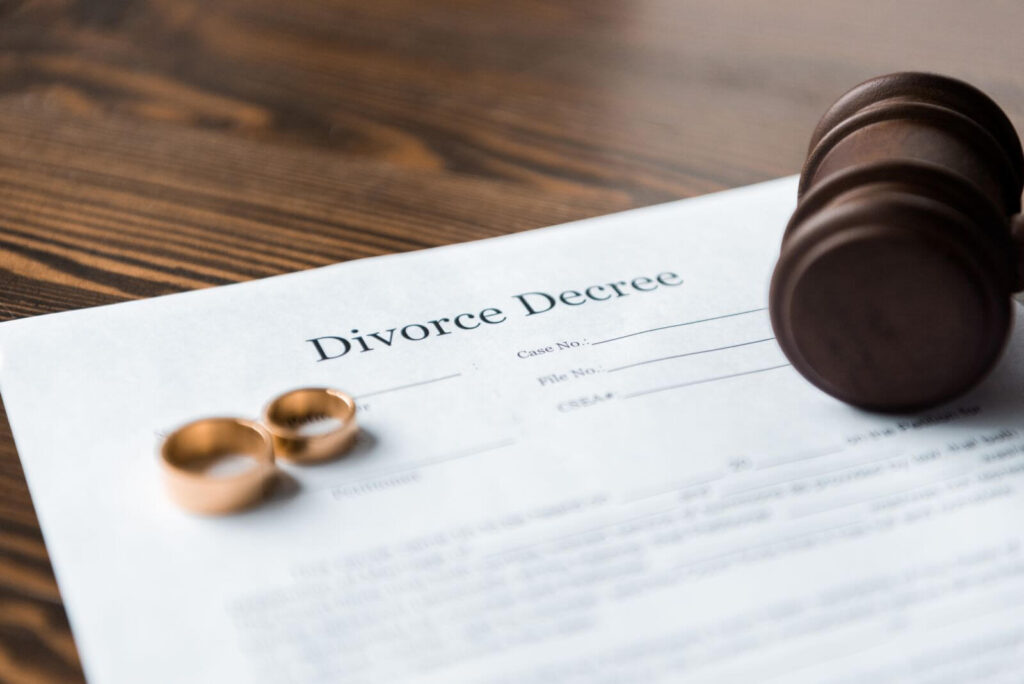There are numerous instances in which a copy of your divorce decree may be required. Some are as basic as presenting divorce documentation, while others involve bringing an ex-spouse back to court for violating the conditions of your divorce decision.
If you are finally alone after a dreadful marriage and a lengthy, costly divorce proceeding, you have reason to be pleased with your divorce decree. The divorce decree results in the issuance of a divorce certificate attesting to the dissolution of the marriage.
Regardless of your need for a decree, you must know how to obtain your divorce records in California and what to expect depending on the organization you contact for assistance. This section provides a concise explanation of the distinction between a divorce decree and a divorce certificate in California, as well as the locations where both documents can be obtained.
The California Department of Public Health – Vital Records (CDPH-VR) maintains divorce records for only 1962 through June 1984.
What is a Decree of Divorce?
A divorce decree is a court-issued, legally enforceable document that formally dissolves a marriage. It comprises all available information surrounding a divorce proceeding, including orders or agreements addressing:
- Spousal support
- Child support
- Child custody
- Parental visitation
- Division of property and liabilities
- Any name change
Other relevant information
A divorce decree is a formal, enforceable order that must be followed by the former spouses. It resolves every issue associated with the divorce.
What differentiates a divorce decree from a divorce certificate?
The state of California issues a certificate of divorce for record-keeping purposes. Not an official court document. A divorce certificate contains the names of the parties together with the date and location of the divorce.
A divorce certificate does not contain personal information, agreements, or court orders. It is a document comparable to a birth certificate or marriage license. Generally, a divorce certificate is considered as proof of divorce.
Since this information is not contained on a divorce certificate, name changes on crucial papers such as a driver’s license or Social Security card may require a piece of the divorce decree to affirm consent for a name change.
Where You Can Obtain Your Divorce Decree
Contacting the California County Superior Court where your divorce was granted is the most effective method for obtaining a copy of your decree. The court clerk or records office at that location should be able to provide you with an authenticated copy of your entire divorce decree and any connected paperwork.
The majority of county courts require a written records request to be submitted in person or by mail. You must provide the following information in order to submit your request:
- The names of each individual
- The year of the separation
- The judicial case number
Case numbers can typically be located through the court’s online search function or with the assistance of court officials.
There are costs associated with both the copies and certification of the papers. As procedures differ by county, it is important to contact the appropriate court in advance and get divorce decree information.
Learn if you are eligible to obtain divorce records
California has determined that individuals requesting a divorce decree must fall into one of the following categories in order to obtain a certified copy:
- Be a named party in the divorce proceeding.
- Be a parent or legal guardian of the named individual.
- Be the spouse of the named party.
- Be the spouse of a named party.
- Be the sibling of a specified party.
- Be a descendant of a specified party.
- Be the grandparent of a specified party.
. You must be an authorized or legal representative of the named party.
Where Else You Can Obtain Your Divorce Certificate
Copies of divorce certificates can also be obtained from the California Superior Court in the county where the divorce was granted. As is the case with divorce decrees, the court clerk or records office should be able to assist you.
The California Department of Public Health is an alternative for divorces that occurred between 1962 and June 1984. The CDPH only offers a certificate of divorce. Six months or longer are required to acquire the divorce certificate. Read more about it here
There are two types of California divorce records
certified and informational. Certified copies are authorized copies of the divorce record and can be used for legal purposes, such as for remarriage or to change your name. Informational copies are available to the public but are not authorized for legal purposes.
It’s important to note that some California divorce records may be confidential, meaning that they are not available to the public. For example, records involving domestic violence or child abuse may be confidential to protect the safety and privacy of those involved. However, authorized individuals, such as law enforcement or child protective services, may be able to access these records.
Following proper procedures to obtain your California divorce records
If you need to obtain a California divorce record, it’s important to follow the proper procedures and provide accurate information. Working with an experienced family law attorney can help ensure that you understand your rights and obligations and can help you navigate the process of obtaining divorce records.




